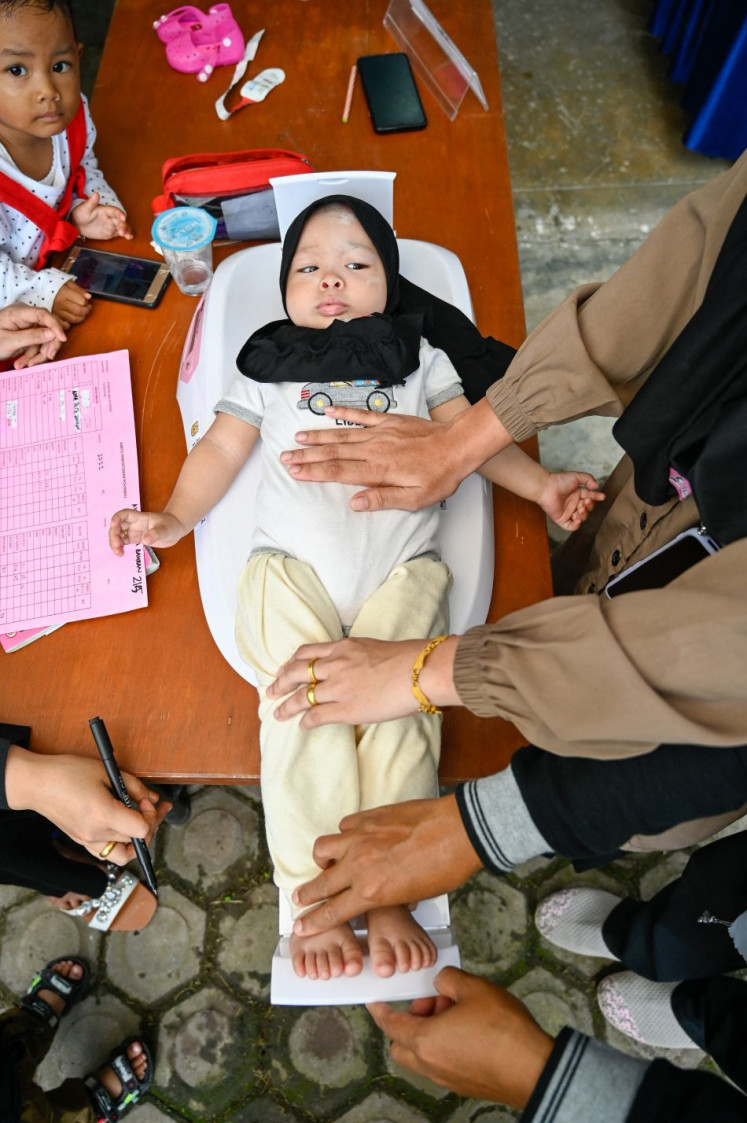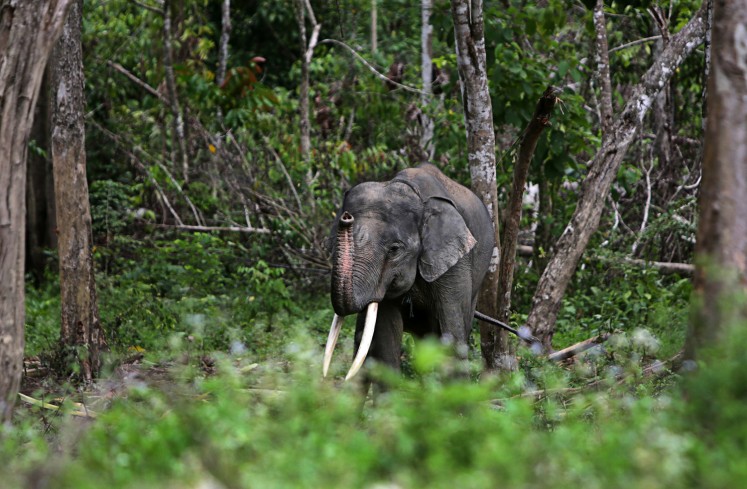Popular Reads
Top Results
Can't find what you're looking for?
View all search resultsPopular Reads
Top Results
Can't find what you're looking for?
View all search resultsIndonesia's coffee trail: In search of your coffee cup origin
The rise of this coffee consuming culture influences the rise of good quality coffee processing.
Change text size
Gift Premium Articles
to Anyone
 Lencoh coffee started to increase in popularity after some coffee community activists from Yogyakarta and Surakarta visited the village to conduct workshop on how to process the coffee beans, which included a very important advice, which is to only harvest the full grown dark red ones, not the green- nor yellow-colored. (JP/Stefanus Ajie)
Lencoh coffee started to increase in popularity after some coffee community activists from Yogyakarta and Surakarta visited the village to conduct workshop on how to process the coffee beans, which included a very important advice, which is to only harvest the full grown dark red ones, not the green- nor yellow-colored. (JP/Stefanus Ajie)
I
ndonesia is the fourth largest coffee producing country after Brazil, Vietnam, and Colombia with the average production of 691,000 tons of coffee per year. The growing number of coffee shops in cities, featuring espresso-based coffee or manual brew coffee, compete in differentiating their businesses. The rise of this coffee consuming culture influences the rise of good quality coffee processing.
Yogyakarta’s popular coffee shop, Klinik Kopi, for instance, started to buy its own roaster machine and buy the coffee green beans directly from farmers, before roasting the coffee in their bamboo-design coffee shop. Recently I visited Klinik Kopi and saw how they lightly roast beans, brewing them manually. They have designed their own pour over drip filter called “KoKa”.
A Bandung-based coffee roastery called “Florist” opened their first coffee shop inside a florist store in Tegallega area and currently, they have their second store in Lembang. Their key business is in selling the green beans to supply other coffee shops or distributors under the brand “Klasik Beans”. Florist also sells roasted beans and tries to improve the quality of coffee farms by educating coffee farmers, especially in West Java.
During my research in Bajawa, Flores in developing a coffee trail for the increasingly popular Flores Bajawa, I met several farmers who continuously attempt to improve their quality in the stages of planting, harvesting and post-harvesting. The head of the Kagho Masa cooperative, known as “Mama Lina”, shared with me her impressions on how the value of Flores Bajawa is increasing. This year she said the cooperative’s coffee sold very quickly after harvest. Such examples show growing demand and interest in coffee.
When people start to consume coffee, then to love it and home brew their own coffee, they will start to buy roasted beans coffee. will buy the green beans instead of the roasted ones. Then people will start being curious about where their coffee beans come from.
One of the interesting concepts that can be applied in Indonesia is by developing a coffee trail around the regions of the coffee origins. Numerous places of single coffee origin are scattered from west to east of Indonesia, from different regions and farms from Aceh to Papua such as Sumatra Mandaeling, Aceh Gayo, Sulawesi’s Toraja, West Java’s Malabar, Central Java’s Sindoro, Bali Kintamani, Flores Bajawa, Papua Wamena, and many others.
Coffee trail expeditions can be intriguing for coffee lovers, as part of researching coffee trails, where one could meet coffee farmers, visit the farms, observe harvests, learn the post-harvest process, and local roasting and brewing traditions.
Developing coffee trail destination maps can be among alternative tourism programs that can be developed either by the Tourism Ministry, private tour operators, local NGOs or government offices, or by coffee farmers themselves.
Some benchmarks for successful coffee trail destinations are in Central and South America such as Costa Rica, Ecuador, Columbia, Peru, Brazil and in Africa, including in Tanzania, Kenya, and Rwanda.
I had a chance to experience coffee trail expeditions in Tanzania, guided by the Kahawa Shamba community-based project, in Peru by the Café Mayu, and in Puerto Rico by the Hacienda San Pedro coffee shop.
Such activities can garner additional income for coffee farmers, while increasing awareness of their brands, both for coffee lovers and travelers in general.
***
The writer is co-founder and CEO of Wanderlust Indonesia, a social enterprise for sustainable tourism programs in Indonesia. She graduated from Boston University, majoring in Economic Development and Tourism Management, and Innovation and Technology.
---------------
We are looking for information, opinions, and in-depth analysis from experts or scholars in a variety of fields. We choose articles based on facts or opinions about general news, as well as quality analysis and commentary about Indonesia or international events. Send your piece to academia@jakpost.com.









